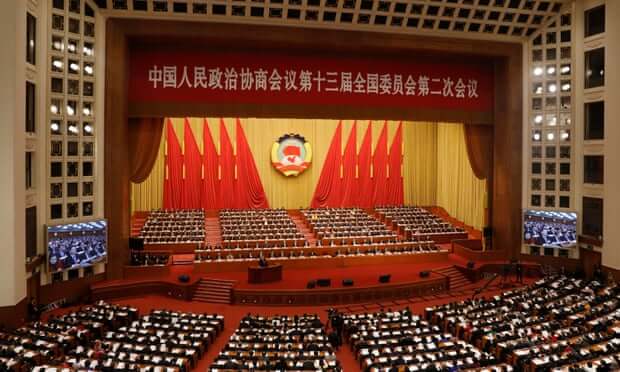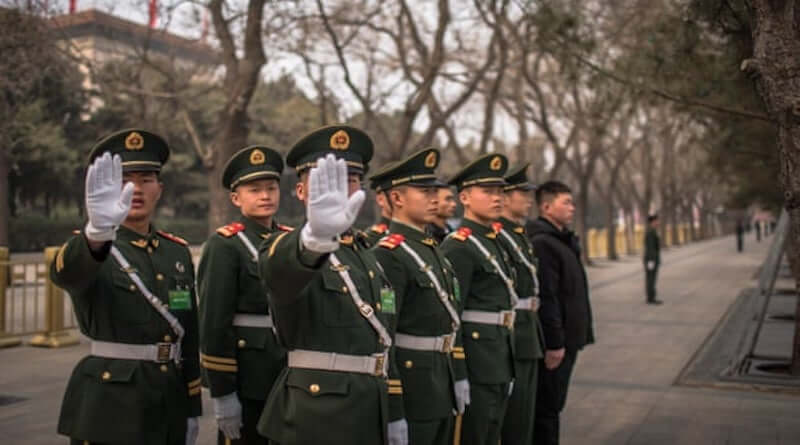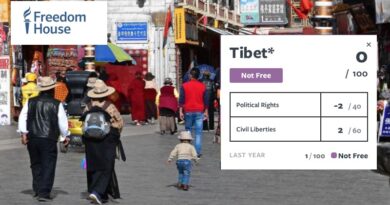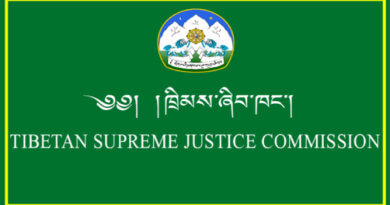Beijing under lockdown as China’s rubber-stamp parliamentary meeting begins

DHARAMSALA, March 5: The National People’s Congress, China’s rubber-stamp parliament, began its annual session today at the Great Hall of the People in Beijing with heightened security presence.
China’s Premier Li Keqiang opened the National People’s Congress by announcing a lower GDP growth forecast for 2019. The government is targeting economic growth of 6.0 to 6.5 percent in 2019, Li said in his opening remarks which is less than the 6.6 percent gross domestic product growth reported last year. The opening of the annual session of the National People’s Congress was attended by about 3000 deputies from across China.
Observers expect the session to be heavy on economic legislation owing to decelerating economic growth, a festering trade war with the US, heightened international concern over Chinese tech firm Huawei, growing global criticism over Chinese policies in Xinjiang and setbacks faced by Xi Jinping’s signature Belt and Road initiative project.
As the National People’s Congress began its annual session earlier today, a parallel meeting of the top political advisory body, the Chinese People’s Political Consultative Conference (CPPCC), kicked off on Sunday,
The annual two-week gathering of China’s rubber-stamp parliament and its advisory body, CPPCC is known collectively as the “two sessions”.
While CPPCC, that includes actor Jackie Chan and former NBA star Yao Ming as its members, is largely a ceremonial advisory body, the NPC is merely the top legislative body in China just on paper.
The two-week gathering over March 3 -15 will provide a glimpse into China’s politics and priorities, though most of the bills have already been decided by Communist Party leaders well in advance.

As China’s largest political event of the year got underway, the Chinese capital is placed under a security lockdown.
Human rights activists were either put under surveillance or forced out of the capital where the meeting is being held.
Hu Jia, an environmental activist based in Beijing who has been under house arrest since February 26, was told by public security that he would be taken south to Guangdong during the meeting and returned likely on March 16 after the two sessions conclude, reports The Guardian.
“It happens every year. It’s not a strange thing. It’s called being placed under control, or being travelled, or placed under home arrest,” Hu was quoted as saying in the report.




